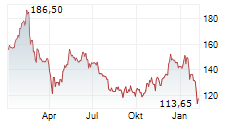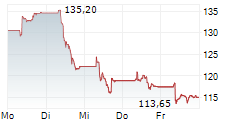
Press contact:
Florence Lievre
Tel.: +33 1 47 54 50 71
Email: florence.lievre@capgemini.com
While connected products are increasingly being adopted, 65% of consumers would prefer one interface to enable interoperability across devices
Paris, January 4, 2023 - Connected devices1 have become an integral part of life for consumers according to the Capgemini Research Institute's latest report "Connected products: Enhancing consumers' lives with technology". The research found that over a third of consumers plan to buy more connected devices in the next year, with health and home security devices set to drive the most sales. While consumers have an insatiable appetite for connected products, they expect vendors to take greater responsibility for sustainability issues such as e-waste2 and ensure stronger data protection.
The survey found that 67% of consumers consider connected products a necessity and 41% say they help them to save time and make them less aggravated.
Consumers' preferences and trends are:
- Entertainment devices and connected vehicles: with four in five consumers owning a connected entertainment system, including smart TVs and gaming systems, connected entertainment devices are the most popular connected products globally. Connected vehicles3 have also continued to rise in popularity with 60% of consumers now owning one. However, ownership rates vary widely between countries, with the highest rate in the US (77%) and the lowest rate in Canada (38%).
- Smart home security and smart healthcare are the leading product categories for intended purchases over the next 12 months, suggesting an increasing emphasis on personal safety, well-being, and further integration of technology into daily life.
- Voice assistants: there is increasing adoption of voice assistants, with 85% of consumers globally using some kind of voice assistant at home, on their mobile or in their car. Primary usage is for browsing or researching products and services.
- Wearables: a large majority of consumers are looking to cut down their screen time and, to this end, are willing to try wearables - such as watches, health wearables or smart glasses - as alternative to cellphones. Healthcare wearables is one of the leading product categories for intended purchases over the next 12 months, with 29% of consumers planning to buy one in the year.
Concerns around interoperability, data privacy and sustainability
According to the survey, getting interoperability and ease of use addressed should be a priority for connected product companies. Navigating between device ecosystems can be challenging: almost two in three consumers (65%) say it would be more convenient if there was a single interface for all connected products.
Consumer awareness about e-waste and carbon footprints is also rising (68% of respondents): they want the organizations that develop the products to ensure they are sustainable and to get information on the carbon footprint of the devices. Consumers show concerns around the lack of recycling avenues and ways to responsibly dispose of e-waste, with 50% of consumers having obsolete technology products at home that they feel unable to dispose of safely.
Another concern expressed by consumers is data security with just 36% expressing satisfaction with the privacy offered by the connected products. Interestingly, whilst trust levels in the data produced by healthcare wearables is high - 56% of respondents are feeling vulnerable about companies having access to their health data through connected products.
Nicolas Rousseau, Group Offer Leader Intelligent Products & Services at Capgemini said: "Consumers are using connected devices as a means to make their lives easier, but they can be so much more than that. Connected devices hold the potential to enable hyper-personalized products and services. Technologies like generative AI can help achieve new levels of connected experience and consumer satisfaction. However, issues around data privacy and security still need more focus to secure consumer trust, along with a commitment to true interoperability and frictionless connectivity. Without these components, users will become frustrated and market momentum will slow. As awareness is rising on e-waste and carbon footprints, consumers' expectations on the sustainability of products need also to be part of the equation."
To access the full report: link
Methodology
For this report, the Capgemini Research Institute surveyed 10,000 consumers over the age of 18 in 13 countries across Asia Pacific, Europe, UK and the North America. The survey took place in November 2023. Alongside this survey, it conducted in-depth interviews with industry executives working in the connected technology space.
About Capgemini
Capgemini is a global leader in partnering with companies to transform and manage their business by harnessing the power of technology. The Group is guided everyday by its purpose of unleashing human energy through technology for an inclusive and sustainable future. It is a responsible and diverse organization of nearly 350,000 team members in more than 50 countries. With its strong 55-year heritage and deep industry expertise, Capgemini is trusted by its clients to address the entire breadth of their business needs, from strategy and design to operations, fueled by the fast evolving and innovative world of cloud, data, AI, connectivity, software, digital engineering and platforms. The Group reported in 2022 global revenues of €22 billion.
Get The Future You Want | www.capgemini.com
About the Capgemini Research Institute
The Capgemini Research Institute is Capgemini's in-house think-tank on all things digital. The Institute publishes research on the impact of digital technologies on large traditional businesses. The team draws on the worldwide network of Capgemini experts and works closely with academic and technology partners. The Institute has dedicated research centers in India, Singapore, the United Kingdom and the United States. It was recently ranked #1 in the world for the quality of its research by independent analysts.
Visit us at https://www.capgemini.com/researchinstitute/
1 Definition of a 'connected product' in this report: Any product the consumer uses while it is connected to the Internet and comes with an app. Connected products include smart watches and wearables; home automation including lights, security, doorbells, and thermostats; health products that track and monitor heart rate, weight, blood pressure, or glucose level; and mirror fitness systems or Peloton spinning systems. Smartphones and tablet models are excluded from the scope of this research. Nevertheless, some of the connected products included in the research use a smart phone connection for some functions (for example, a smart watch connects with a smart phone to receive calls and notifications).
2 e-waste, or electronic waste, describes discarded electrical or electronic devices. It is also commonly known as waste electrical and electronic equipment or end-of-life electronics. Used electronics which are destined for refurbishment, reuse, resale, salvage recycling through material recovery, or disposal are also considered e-waste.
3 A connected vehicle refers to a vehicle that is equipped with communication technologies such as the internet, allowing it to connect with external networks, devices, or services.
Attachments
- 2024_01_04_Connected products_enhancing consumers lives_Capgemini_ (https://ml-eu.globenewswire.com/Resource/Download/1e793ea3-6992-4815-b95e-3b1dc9a9fe58)
- Capgemini Research Institute_Connected Products_Infographic (https://ml-eu.globenewswire.com/Resource/Download/51683e01-5c19-407d-8c3a-7fe9c05a73b3)





